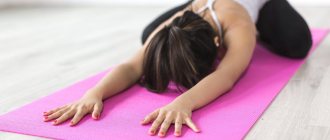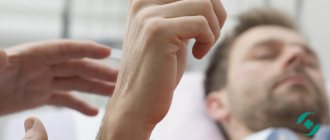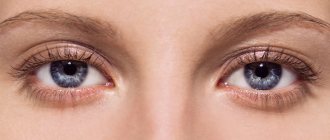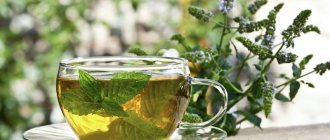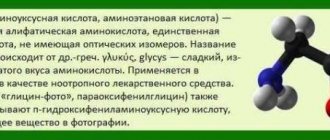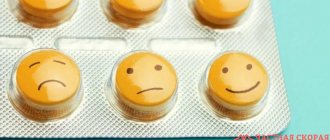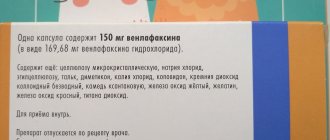Scientific research indicates that approximately 10% of the world's population suffers from insomnia, and a huge number of people claim that they cannot sleep without watching TV. However, TV, smartphone and computer do nothing to promote sleep. Rather, on the contrary, the blue light emitted by screens destroys the sleep hormone in our bodies.
The hypnotic effect of television is just a ritual to which a person is accustomed. The brains of those who watch TV at night are already programmed that sooner or later sleep will come after watching TV. A similar reaction occurs in the brains of those who like to read every night before bed, but for them the book serves as such a signal.
Exactly the same ritual that promotes good sleep can be evening tea drinking. And if you choose the right components for tea, you can achieve a hypnotic effect no worse than from less safe tablets.
Herbal tea for sleep: benefits and harms
Content:
- Herbal tea for sleep: benefits and harms
- Chamomile
- Valerian
- Lavender
- Melissa
- Hop
- St. John's wort
- magnolia bark
- Passionflower
- Ashwagandha
Until recently, herbal teas were perceived only as part of traditional or alternative medicine. But in the process of modern scientific research it has been revealed that some herbs have a hypnotic effect. We’ll talk about which herbs have these properties a little later, but for now let’s talk about some rules and warnings.
Although herbal teas are considered a safe treatment and in many cases are useful even for children, they also have side effects. Some of them can cause allergic reactions and are therefore contraindicated for allergy sufferers, while others can cause heartburn and stomach pain, making them unsuitable for people with gastritis or peptic ulcers.
Some herbal teas may be contraindicated in pregnant women, while breastfeeding, in those with autoimmune diseases, or before surgery. They may also be prohibited during treatment with prescription sedatives, antidepressants, anti-tuberculosis or anti-inflammatory drugs, blood thinners and blood pressure lowering drugs.
Herbal relaxing tea
Among the representatives of herbal tea, or herbal tea, it is worth paying attention to the following varieties:
- Herbal tea “Evening” lulls you to sleep with its aroma alone, and after a sip of this delicious drink you forget about all your worries. The composition includes chamomile and cornflower tea, natural mint and lavender flowers;
- Honeysuckle (golden and silver flowers) is a real storehouse of useful substances, gently relaxes and normalizes the functioning of the nervous system;
- Herbal tea Ivan-tea (fireweed) is a unique bouquet of safe natural ingredients that will gently raise vitality and protect against destabilization of the nervous system during periods of high stress;
Chamomile
Chamomile tea is one of the most popular in the world. The dried flowers of this plant have a sweetish aroma and the same taste.
The journal BMC Complementary and Alternative Medicine published the results of a study [1] regarding the effect of chamomile on sleep quality. The experiment involved 34 people with insomnia. They were divided into two groups. Representatives of the first group drank chamomile tea for a month, the rest were in the control group, where they did not adhere to this ritual. After a month, people from the first group not only began to sleep better, but also became more active and alert throughout the day. Therefore, for those who have difficulty falling asleep, experts advise drinking a cup of warm chamomile tea 30 minutes before bedtime. In another experiment, ten patients with heart failure fell asleep almost immediately after drinking a cup of chamomile tea. Some of them slept for almost 90 minutes.
The thing is that chamomile has a calming effect on the body, also exhibiting a hypnotic effect. The plant contains a chemical known as apigenin, which acts on benzodiazepine receptors in the brain and causes sedation. This is why chamomile essential oils are often used in aromatherapy as a sedative.
Research shows that chamomile has anticonvulsant properties and is an excellent central nervous system relaxant. This plant contains antioxidants that neutralize free radicals that cause negative reactions in the body. But this is not all the beneficial properties of chamomile.
The plant can help relieve migraine attacks. Chamomile eliminates unnecessary anxiety, reduces the severity of allergies, inflammation, and relieves spasms. Tea from this plant helps strengthen the immune system, so chamomile drink is considered very useful in the cold season. It is rich in flavonoids, which help relieve stress and calm you down. Chamomile flowers are also a good source of various beneficial substances, including calcium, magnesium, potassium, fluoride, folic acid and vitamin A.
Despite the fact that chamomile helps cope with insomnia, in some cases it is not advisable to drink chamomile tea. There is a possibility that the drink will cause cross-allergy in people who have a reaction to chrysanthemums, ragweed, arnica, sunflowers, asters or marigolds. In most cases, a chamomile allergy manifests itself in the form of a rash, but more serious reactions such as anaphylactic shock, accompanied by swelling of the throat, difficulty breathing and shortness of breath, are also possible. Chamomile tea is also contraindicated for people with asthma, as it can provoke an attack of the disease. But people without allergies should not get too carried away with this drink. If you drink too much tea, and very strong tea at that, you may experience nausea and vomiting. Therefore, you should start drinking herbal tea with small portions.
Chamomile tea in combination with benzodiazepines, barbiturates and alcohol can cause excessive drowsiness, and the use of anticoagulants (blood thinners) increases the risk of bleeding.
Preparation: take 1 tsp. dried flowers, pour 1 cup of boiling water and let steep for 10 minutes. You can add a little honey before drinking.
How to improve your sleep quality
First, you should go to the doctor and find out what the problem is. The fact is that although it is possible to instill good habits, if you have obstructive apnea syndrome and are constantly lacking oxygen, they will not help improve the quality of sleep.
“You should consult a doctor in the following situations: there is severe drowsiness, rapid weight gain, increased blood pressure, belching occurs at night and problems with falling asleep last longer than a week,” recommends Olga Beyo.”
According to Mikhail Poluektov, signs of poor sleep 1-2 times a week are not scary. However, you should consult a somnologist if they occur more than three times - in this case, a sleep disorder can be assumed.
Just like oral hygiene, sleep hygiene can be corrected and improved. The following recommendations are average and are intended for people with poor sleep habits and who do not have diseases that reduce their quality:
- At least an hour before you need to avoid devices that emit blue and bright light: smartphone, laptop, TV and tablet. The fact is that the brain perceives such light as daylight, and therefore delays falling asleep. If you can’t do it in an hour, try not to look at the screen for at least 30 minutes
- A routine helps you get ready for sleep: for 30-60 minutes before bed, do the same things, for example, read, brush your teeth, put on pajamas. These nightly rituals help you get used to the fact that it will soon be time to go to bed.
- Try to go to bed and wake up at the same time, recommends Olga Beyo. When you get ready for bed and wake up at certain times, over time your brain gets used to the routine and the process of falling asleep occurs much faster
- To help you fall asleep faster, avoid drinking alcohol or caffeine-containing products before bed, including coffee and tea.
“In fact, there is no clear period of time before which you cannot drink coffee,” explains Mikhail Poluektov. — There have been no studies that would say that, for example, you should not drink coffee 3, 5 or 7 hours before bedtime. The main thing is not to do it before you go to bed.”
- Avoid daytime naps. As a last resort, if you feel that it is impossible to do without it, sleep during the day for no longer than 30 minutes;
- Melatonin supplements will help you fall asleep faster - but you should discuss taking it with your doctor
- Minimize outside light from windows and street noise. For this you can use blinds, blackout curtains, curtains and blackout windows.
- Exercise during the day, but not before bed. This could be regular exercise, gymnastics, jogging, swimming. For example, moderate physical activity during the day in older people reduces the time it takes to fall asleep by half.
In addition, according to Mikhail Poluektov, it is also important not to check the time and not to pick up the phone when waking up at night, and also not to engage in activities not related to sleep in the bedroom, for example, working and answering letters.
If you think you have problems sleeping, first consult a specialist to rule out diseases and disorders. If it turns out that the problem is simply poor sleep habits, follow the recommendations above.
Valerian
Valerian is another popular remedy for insomnia. The name of this plant comes from the Latin word meaning “to be healthy.” The medicinal properties of valerian were known back in Ancient Greece and Rome. In ancient times, the root of the plant was used to treat insomnia, headaches, neuroses and seizures.
Scientists make reasonable assumptions [2] that valerian not only promotes the onset of sleep, but also improves its quality, having a beneficial effect on the deep phases. This is crucial for restoring energy and allowing a person to feel rested.
The thing is that valerian roots contain substances that can influence certain parts of the brain, stopping mental activity and causing relaxation. This ability of the plant determines its calming properties. Therefore, if a swarm of thoughts prevents you from falling asleep, try drinking an infusion of valerian root.
The substances contained in this plant increase the production of gamma-aminobutyric acid (GABA) in the brain, a chemical compound necessary for relaxing the nervous system. GABA activates alpha waves and inhibits beta wave activity in the brain. In turn, alpha wave activity leads to a person becoming less restless and more relaxed.
The advantage of valerian is that it has almost no side effects. In addition to the raw materials for brewing tea, alcohol tinctures, essential oil of the plant, tablets and capsules with root extract are also used for sedative purposes.
Many people know valerian as an affordable sedative, but the extract of this plant can also be useful for treating insomnia, depression and anxiety, and helps relieve migraines. Valerian root tea is also useful for hyperactivity and helps to concentrate, for example, before an important exam.
However, some scientists claim [3] that the effect of teas with valerian extract becomes most noticeable only after several weeks of use, but the calming effect of the first two weeks, according to their observations, is solely a placebo effect.
Despite the many beneficial properties, you should not get too carried away with valerian teas. If you drink too much of the herbal drink, the desire to sleep will appear not only in the evening and at night, but also during the day. Also, an overdose of the extract may cause headaches, confusion, and stomach upset.
Preparation: 2 tsp. chopped roots in 1 glass of water, cook for 1 minute, leave for 30 minutes.
Valerian root tea
Valerian is a plant that has been used for centuries to treat problems such as insomnia, nervousness and headaches.
Historically, it was used in England during World War II to relieve stress and anxiety caused by air raids.
Today, valerian is one of the most popular herbal sleeping pills in Europe and the USA.
It is available as a dietary supplement in capsule and tablet form or in liquid form. Valerian root is also commonly dried and sold as a tea.
Researchers aren't entirely sure how valerian root helps improve sleep.
However, one theory is that it increases levels of a neurotransmitter called gamma-aminobutyric acid (GABA).
When GABA is present in abundance, it can increase sleepiness. In fact, this is the way some anti-anxiety drugs like Xanax function.
Some small studies support valerian root as an effective sleep aid.
For example, one study of 27 people with sleep disorders found that 89% of participants reported improved sleep when taking valerian root extract.
Additionally, no side effects such as morning drowsiness were observed after taking the extract.
In comparison, a study of 128 people found that those who received 400 mg of liquid valerian root extract reported a decrease in the time it took them to fall asleep, as well as an overall improvement in sleep quality, compared to those who did not receive extract.
A third study assessed its long-term effects. In this study, taking 600 mg of dried valerian root daily for 28 days had effects similar to those of taking 10 mg of Oxazepam, a drug prescribed to treat insomnia.
It is important to note that these findings were based on participant reports, which is subjective. The studies did not evaluate objective measures related to sleep quality, such as heart rate or brain activity.
Drinking valerian root tea may help improve sleep quality without adverse side effects, but many health professionals find this evidence inconclusive.
Conclusion:
Valerian root may increase sleepiness by increasing levels of a neurotransmitter called GABA. Smaller studies suggest that valerian root may improve overall sleep quality by reducing the time it takes to fall asleep and reducing nighttime awakenings.
Lavender
It is well known that the aroma of lavender has calming properties. But in order to improve your sleep, fall asleep faster and easier, you can use not only aroma lamps, but also drink tea with the flowers of this fragrant plant. This drink has a slightly sweet taste and pleasant aroma.
The homeland of lavender is the Mediterranean, whose inhabitants have known about the amazing properties of this plant since antiquity. Nowadays, this plant is easily grown far beyond the borders of its historical homeland, which makes lavender very accessible as a folk herbal remedy. Moreover, tea with lavender flowers has more than enough beneficial properties.
Scientific research shows that lavender stimulates sleep and improves its quality for a long time, which makes it an excellent remedy for combating insomnia, including those caused by anxiety. Scientists from the University of Vienna have found scientific evidence [4] that lavender essential oils have a beneficial effect on sleep quality, improve a person’s mental and physical well-being, and do not cause an unwanted sedative effect. By the way, today lavender essential oils are one of the most studied substances in this group.
Researchers from the University of Southampton (UK) studied the effect of lavender on the body of adults. It turned out that the sleep of people who took plant extracts improved by 20%. Another study was conducted in Taiwan, where lavender drinks were offered to women who had recently given birth to a child. It turned out that those who drank lavender tea felt less tired. Another study was conducted among middle-aged women. Participants in the experiment who consumed lavender products twice a week for 3 months had decreased heart rate and improved sleep quality.
Drinking lavender tea has many health benefits. In addition to improving the quality of sleep, this drink helps with colds, coughs, bronchitis, has a beneficial effect on heart health, reduces the risk of heart attacks and strokes, regulates the level of “bad” cholesterol, prevents inflammation, reduces anxiety and relaxes.
However, if lavender tea is consumed very often and in large quantities, side effects such as headaches, constipation, increased appetite, increased drowsiness or an allergic reaction are possible. Caution should be taken when drinking lavender drinks in pregnant women (may cause miscarriage), people with hypersensitivity to the sun (possible reaction in the form of a rash), people using blood thinners (lavender can increase their effect) or blood pressure lowering (the plant has antihypertensive properties). Lavender tea is also contraindicated while taking sedatives from the group of barbiturates and benzodiazepines (interacting together, they cause very severe lethargy and drowsiness).
Preparation: 1 tsp. Pour 1 cup of boiling water over dried lavender flowers, cover the vessel tightly and leave for 15-20 minutes.
What to drink for insomnia
If you are already tired of insomnia, you can try to get rid of it with the help of herbal teas. They can be purchased at the pharmacy already packaged in convenient filter bags, or you can prepare them yourself from dried raw materials.
- From medicinal chamomile. Consists of flowers. It has a relaxing effect, calms the nerves well, helps cope with insomnia, anxiety and panic. The sedative effect of chamomile tea is due to the high content of apigenin in its flowers. This substance has a beneficial effect on the nervous system. In addition, this drink will be very useful for headaches and migraines.
- Mint. This soothing tea helps relieve emotional stress after a difficult day at work. A cup of brewed mint will help you fall asleep quickly and sleep peacefully throughout the night. Experts say that the sedative and relaxing effect of this drink is provided by the menthol contained in mint.
- With lemon balm. This medicinal plant is very similar to mint. They differ only in taste - in lemon balm it is lighter and softer. By drinking tea from it, you can get rid of irritability, chronic fatigue, feelings of exhaustion and insomnia, as well as improve your condition with depression. To combat sleep disorders, it is recommended to drink brewed lemon balm in its pure form. That is, without mixing it with black or green tea and without flavor-enhancing additives. To get the expected effect, it is advisable to buy such a drink in pharmacies.
- From hops. One of the main properties of hop cones is a sleeping pill. An excellent remedy for insomnia is an infusion of them. To prepare it, you need to take hop cones (2 teaspoons) and pour a glass of boiling water over them. Infuse the drug for 3 hours, then strain. You should drink intoxicating tea about an hour before bedtime. It is recommended to reheat before use.
Melissa
Melissa can also be very helpful for insomnia. In herbal medicine, its extract is used to create a mild sleeping pill.
The plant has a rich biochemical composition. One of the components is terpenes, which give the herb its calming properties. In addition, lemon balm contains tannins, which have an antiviral effect, and eugenol eliminates muscle spasms, rejuvenates cells and kills bacteria.
Melissa tea was very popular in Europe back in the 14th century. At that time it was used mainly to treat headaches and excessive nervousness. Nowadays, lemon balm is known as a herbal remedy for improving sleep, including in women during menopause.
Scientists from the University of Maryland (USA) conducted a study [5] with the participation of people suffering from insomnia. They were asked to regularly drink lemon balm and valerian root tea in the evenings. As a result, it turned out that 81% of the experiment participants' sleep improved, they began to fall asleep much faster and easier. By the way, many studies have shown that the hypnotic effect of lemon balm is further enhanced if it is combined with other herbs, such as chamomile, valerian or hops. In addition, specialists from the English city of Newcastle found that lemon balm tea can also be beneficial for people with Alzheimer's disease and other diseases associated with memory loss and impaired cognitive functions of the brain.
So, lemon balm tea is an excellent natural remedy for improving sleep. It relieves stress and anxiety, relieves depression, improves mood, strengthens memory and protects the heart, all of which promote a restful night's rest. However, you should not get too carried away with lemon balm drink, especially for people prone to hypotension. In addition, if you drink several cups of strong lemon balm tea every day, addiction may occur over time, and if you suddenly stop drinking it, signs of withdrawal syndrome may appear.
Preparation: 1 teaspoon + 200 ml boiling water, leave for 30 minutes.
The best teas for insomnia and stress
The same chamomile
A classic of the genre and the most popular herbal tea, which can be found both in the supermarket near your home and in any pharmacy. And there are reasons for this: chamomile tea has a number of beneficial properties, including a calming effect, for which three substances are responsible: chamazulene, apigenin and quercetin. They act as antispasmodics: they expand the lumen of blood vessels, relieve headaches and tension, and have a sedative effect.
We wrote about other benefits of chamomile in our article.
Mountain lavender
Beautiful blue flowers with a characteristic smell have been known to doctors since ancient times. The fact that lavender helps you fall asleep quickly was known back in Antiquity: at the same time, sachets with dried flowers were placed next to the pillow so that their aroma would soothe and relieve anxiety.
The calming effect of lavender tea is provided by a combination of tannins and a number of aromatic substances of the terpene group (these are linalool, borneol alcohol and geraniol). American doctors have proven that drinking lavender relieves anxiety and even reduces the severity of depression. And, of course, improves sleep.
And mint and lemon balm
Another leader among soothing teas. In addition to the obvious advantages (mint and lemon balm are tasty, available both dried and fresh, have almost no contraindications, and are suitable for adding to regular tea and even coffee), it is worth remembering the non-obvious ones. Mint is a mild pain reliever that can help relieve headaches, symptoms of stress and fatigue. It also helps you fall asleep quickly.
Fragrant oregano
A beautiful field herb with a characteristic aroma (and at the same time an Italian spice called oregano). Oregano belongs to the Lamiaceae family, like thyme, and is similar in its effect on the body: it has bactericidal properties, helps with coughs and is a mild hypnotic.
Blooming Sally
Another Russian specialty. Ivan tea does not contain caffeine, so a drink with this plant can (and should!) be drunk before bed. Tea relieves tension, relieves headaches and can be a mild sleeping pill. We wrote about other beneficial qualities of willow tea in an article dedicated to it.
Asian lemongrass
The most popular Asian herb, its aroma alone can transport you to a hot tropical resort. Lemongrass has many beneficial properties. It contains many antioxidants that have an anti-inflammatory effect, and essential oils that relieve stress and anxiety. The calming effect of this plant is used in folk medicine and even in spa treatments: it’s not for nothing that Thai massage parlors smell of lemongrass.
By the way, you can drink lemongrass tea not only hot. To fall asleep faster in the summer, drink chilled lemongrass infusion like lemonade.
Hemp tea
This is no joke: hemp tea is truly considered one of the most reliable remedies for good sleep. The drink strengthens the walls of blood vessels, relieves headaches, reduces anxiety, protects nerve fibers, normalizes circadian rhythms and speeds up the process of falling asleep.
Note that in Russia hemp tea has been officially permitted since February 2021 and does not contain psychotropic substances. Read more about this in our article.
Famous valerian
Let's move on to heavy artillery. The advice to “drink valerian” in stressful situations sounds, of course, banal, but an infusion or decoction of valerian is more than a working option when you need to calm down and fall asleep.
The active ingredients of valerian officinalis root are valepotriates and alkaloids. They contribute to a slowdown in heart rate and depression of the central nervous system. This does not make valerian a sleep aid, but it does facilitate the natural onset of sleep. It is worth remembering that the effect of valerian is cumulative; you drink it in courses (ideally, after consultation with your doctor).
Hop
Many people know hops exclusively as an ingredient in beer. But in folk medicine, hop cones have been used as a medicine for many centuries. One of the indications for drinking hop tea is insomnia. In addition, today there is already scientific evidence of the beneficial effect of this plant on the quality of night's rest. Research shows that hops have a moderate sleeping effect, but if you add valerian root extract to the drink, it will become even easier to overcome insomnia.
In addition to its sleeping effect, a drink made from hop cones has an anti-inflammatory effect, helps the body fight infection, removes toxins, improves heart function, and also has a positive effect on brain cells.
To avoid excessively enhancing the sedative effect of hop tea, the drink should not be consumed together with psychotropic drugs. In some cases, herbal tea can cause allergies, so it is contraindicated for allergy sufferers. Hop cones contain substances that help increase the amount of the female hormone estrogen in the body, which is why men should not get too carried away with the drink. Hop tea is also contraindicated for women with a malignant tumor in the mammary gland, pregnant women and people with kidney or liver diseases.
Preparation: pour 5-7 g of crushed hop cones into 250 ml of hot water, bring to a boil, leave for a few more minutes.
Is it possible to drink tea at night, why do you want tea in the evening?
Evening tea is a pleasant ritual, an excellent occasion to gather at a common table with family and friends. Have a heart-to-heart talk, discuss problems, outline plans for the future. Just relax and unwind in a close circle. Tea warms, calms, and puts you in a positive mood.
Is it possible to drink tea before bed, because it increases blood flow, tones and invigorates, and in the evening you need relaxation. Caffeine, an alkaloid found in tea leaves, has an invigorating effect. Caffeine, entering the blood, reduces the production of melatonin, the sleep hormone, which makes it difficult to fall asleep, shortens the period of deep sleep, and worsens its quality.
The caffeine content of tea leaves depends on the variety, growing conditions, harvest season, and processing standards. People react to caffeine differently. Some people fall asleep well after two or three cups of strong infusion drunk at night. Some people can't sleep because of a cup they drank at lunch.
Caffeine is quickly absorbed into the blood. Its peak plasma level is recorded in the first half hour after administration. It is excreted within 2-6 hours, depending on the individual characteristics of the person, concentration in the blood, and other external factors.
However, tea leaves contain theanine, a plant amino acid that has a sedative effect, promotes the production of serotonin and weakens the stimulating effect of caffeine on the nervous system. Black varieties are loaded with theaflavin (70% fermented leaf polyphenols) and thearubigin. Active polyphenols give the drink a golden-reddish hue and a persistent resinous aroma. Green varieties are not fermented; they contain catechins, which give the infusion a herbal tint and tart freshness.
Tea tannins, which have sedative, anti-inflammatory and antioxidant effects, soften the stimulating effect of caffeine, protect the heart and blood vessels; cleanse the liver, normalize the synthesis of fatty acids and cholesterol production. Food is easier to digest and digest, which has a beneficial effect on the quality of night's sleep. A cup of properly brewed evening tea infusion will help you relax, relieve emotional arousal, and distract yourself from obsessive thoughts that prevent you from falling asleep peacefully.
Doctors do not recommend:
- Drink tea on an empty stomach.
- Along with the medicine.
- Too strong.
- Too hot.
- In large quantities.
It is better to drink evening tea 3-6 hours before bedtime. Without the risk of causing insomnia - 1-2 cups. Not on an empty stomach, so as not to damage the stomach, but after a light dinner, preferably after 20-30 minutes. Lemon, jam, preserves, sugar soften the stimulating effect. For people who are especially sensitive to caffeine, it is better to choose herbal herbal teas, rich in vitamins and having a sedative effect.
St. John's wort
St. John's wort is mentioned in folk medicine in most countries of Europe and Asia, in particular as a natural remedy for the treatment of mental disorders and insomnia.
Studies of the properties of the herb have shown that it has a beneficial effect on the quality of sleep, in particular its deep phase, which determines whether a person will be rested and alert after waking up.
St. John's wort is a plant rich in beneficial substances such as flavonoids, phytosterols, coumarins, xanthones and essential oils. The special chemical composition also affects the hormonal balance in the body, and it plays an important role in maintaining the correct “settings” of a person’s internal clock. Simply put, if hormones are normal, then a person will want to sleep at night and be awake during the day.
In addition, St. John's wort is a good natural cure for depression. It contains chemical compounds that regulate the production of serotonin, dopamine and norepinephrine, which affect a person's mood and motivation. And happy people, as studies show, are less likely to suffer from insomnia or other sleep disorders.
St. John's wort tea is also useful for people trying to quit smoking or drinking alcohol. The drink makes them calmer and more balanced.
The herb St. John's wort is rich in antioxidants and chemical compounds with anti-inflammatory effects, making this herb useful for relieving joint and muscle pain.
However, you should not overuse St. John's wort tea, as it can cause spikes in blood pressure, nausea, dizziness, panic attacks or stomach upset. In addition, St. John's wort is one of the herbs that does not combine well with various medications.
Preparation: 10 g of dry herb, pour 100 ml of boiling water, leave, strain, then dilute with water in a ratio of 1: 3.
magnolia bark
In Chinese medicine, the therapeutic properties of magnolia bark have been known for more than 2000 years. This remedy is used for antiseptic, antibacterial, antispasmodic and anti-inflammatory effects. In addition, magnolia bark contains substances that affect the central nervous system and help a person fall asleep faster.
The tree bark is rich in chemical components that affect the production of GABA, which promotes relaxation and “switching off” the brain. The drug diazepam does something similar to our central nervous system. Research shows that magnolia bark contains substances that inhibit the release of adrenaline, promote relaxation and make it easier to fall asleep. It also contains biologically active substances that help prolong the deep sleep phase.
If you drink magnolia bark drink too much, some side effects may appear, for example: dizziness, hand tremors, and a severe decrease in blood pressure. You should also know that such tea is strictly prohibited for children, pregnant and lactating women. To avoid an excessive sedative effect, the drink should not be combined with sedative medications, as well as other herbs with a hypnotic effect.
Preparation: pour 1 teaspoon of crushed bark into 300 ml of boiling water, cook for 10-15 minutes.
Passionflower
The medicinal properties of this plant are known throughout the world, however, as a remedy for insomnia, as well as a natural cure for epilepsy, passionflower began to be used only in the 18th century.
Today, researchers know that passionflower flowers not only create a hypnotic effect, but also have anxiolytic (reduce anxiety), sedative, anticonvulsant and analgesic properties.
The therapeutic effect of passionflower is determined by the phytochemicals contained in the plant. In particular, the beneficial effects on the central nervous system, and thus the hypnotic effect, are achieved thanks to apigenin, orientin, swertiamarin, quercetin, kaempferol and chrysin. These substances act as sedatives on humans.
Data from scientific experiments indicate [6] that drinking passionflower tea stimulates the production of GABA, resulting in relaxation of the body and easy falling asleep. In addition, passionflower helps relieve muscle spasms, improves heart function, normalizes blood pressure, and also helps cope with symptoms of stress and anxiety.
Although the list of beneficial properties of passionflower is quite large, tea from this plant is not suitable for everyone as a natural sleep aid. For example, it is contraindicated in pregnant women as it can cause premature birth or miscarriage. It is also not recommended to drink tea from this herb if you have low blood pressure, gastrointestinal diseases, or while taking antidepressants and sedatives.
Preparation: for 1 tsp. herbs take 150 ml of boiling water, you can boil for 1 minute and then leave for 20 minutes.
Let's summarize
If you need to calm your nerves and improve the quality of your night's rest, calming tea is just what you need. A combination of several herbs that have a sedative effect will finally help you get rid of insomnia and problems falling asleep. In addition, such teas are beneficial for overall health.
Drinks made from medicinal herbs are also recommended for those who do not complain about sleep. They are great for calming your nerves after a busy day at work. They also help you sleep soundly, which is important for quality restoration of strength and increased productivity.
Herbal teas are a safe method of combating insomnia. They are easy to prepare yourself, guided by your own taste preferences. Everything you need for preparation can be purchased at any pharmacy.
Author: Yulia Zablotskaya
